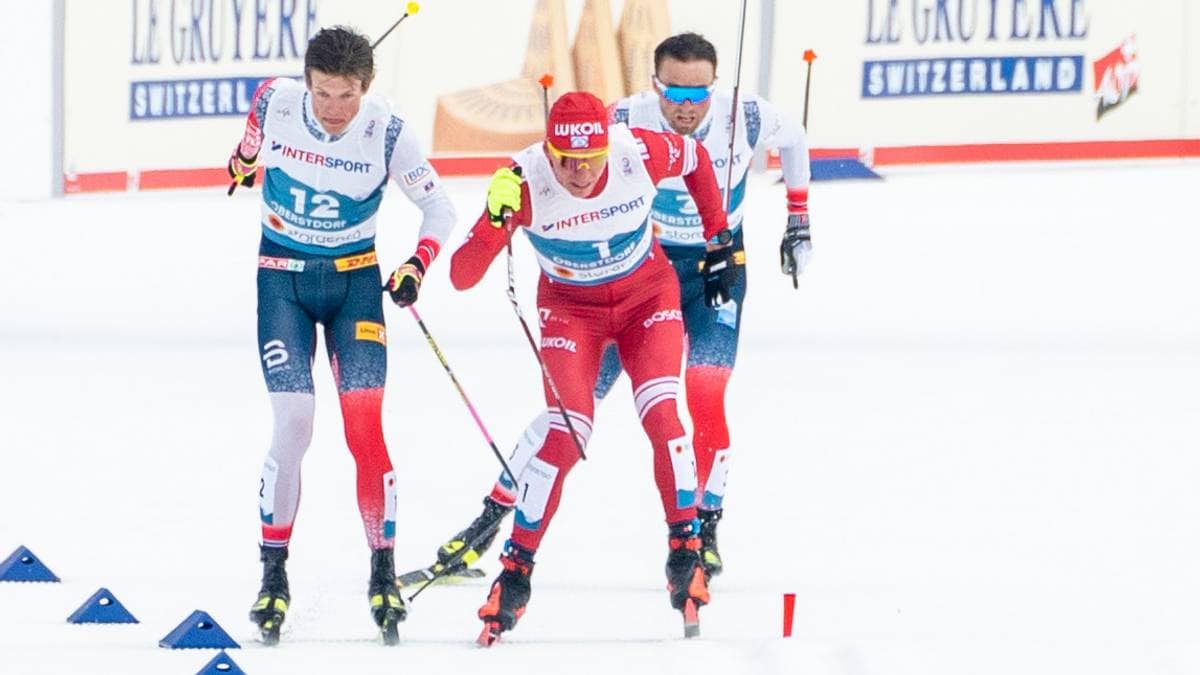– I have to say it’s positive. As athletes, we also have the right to legal certainty. Then, it is important that there are laws and rules that meet the objectives, and that are in step with the times and situations that arise or may arise. It’s good for the runners, and I welcome that. At the same time, it is a bit high time for this to happen, Johannes Høsflot Klæbo tells NRK about the ongoing process.
On March 7, Klæbo finished first in the Five Mile World Cup in Oberstdorf. But it is Emil Iversen who is called to the podium as world champion.
After long discussions in the jury room, Klæbo was disqualified due to a minor clash with Aleksandr Bolshunov at the start of the race.
This led to important discussions on the interpretation of the rules. And it was far from the only time last winter. In both Lahti and Falun, there was great disagreement over the jury’s decisions.
The International Ski Federation (FIS) has now taken action.
– Can be misunderstood
– We have received comments that the wording of the regulations may be misunderstood. It must be understood by lawyers and non-lawyers. This applies, for example, to the definition of obstruction, explains Vegard Ulvang, chairman of the FIS cross-country committee.
DRAMA IN THE JURY ROOM: On two occasions, Johannes Høsflot Klæbo had to join the jury before being deprived of World Cup gold.
Photo: Anders Skjerdingstad / NRK
Among those who think it is high time to revise the rules of cross-country are Øystein Myre Bremset and Martin Aspaas of law firm BAHR. Following Klæbo’s disqualification, they delved into the rules and pointed out several weaknesses in one column.
– The regulations are characterized by the fact that they are drafted by non-lawyers, and that they contain a certain number of ambiguities both in terms of the interpretation of the rules, the penalties in the event of breach of the rules and the rules for handling cases. The Klæbo case also left the impression that a practice has developed in the ski world which on several key points is in direct conflict with what is really in the rules, lawyers now tell NRK.
Ulvang makes no secret that regulation requires legal quality control. He himself is one of those who played a central role in its design.
Not written by lawyers
– The regulations are revised at the congress every two years. And it’s designed primarily by ski enthusiasts, not lawyers. With a higher level of conflict and lawyers as anchor points, legal assistance will be needed, Ulvang acknowledges.

CLEANUP: Vegard Ulvang is getting a lot of it when the cross country rules get clearer now.
Photo: Anders Skjerdingstad / NRK
As a result, his committee conducted a wide-ranging round of consultations this spring. Six working groups discussed, among other things, future lists of mandates, competition formats and rules.
Among those who participated is Johannes Høsflot Klæbo.
– It is important that the regulations are in phase with the developments and situations that arise and may arise, and that they are harmonized with the law. I think FIS has potential for improvement, so it’s good that they’re working on it now, he told NRK.
– What did you express during the consultation meeting?
– I don’t want to go into details on that. From my point of view, I saw some weaknesses and communicated my point of view to the FIS in a meeting that Arild Monsen and I had with them.
Legal advice
According to Ulvang, a committee will now work with the wording of the regulations leading up to the fall cross-country committee meeting, based on the comments received. Ulvang confirms that the principles of the situation with Klæbo and Bolshunov at the Five Mile World Cup have been concretely discussed.
– Many think that the rider in the lead cannot be given as many advantages as today. Then there is the question of whether there are any alternative solutions. It has been an interesting and useful exercise for many, says Vegard Ulvang.
Lawyers Bremset and Aspaas have the following advice for the committee, which will now professionalize the rules:
– First, they should strive to create clear rules that athletes can easily relate to. Second, they should think about what kind of practitioner behavior the rules should encourage. Third, you have to think about what kind of case-handling rules to follow if you want to deprive the first person for the purpose of gold, say the lawyers, who think the Klæbo case is a horror example.
– The first man to finish was deprived of the gold after a live broadcast process where the jury was exposed to all possible influences along the way, and without the jury having to justify their decision. Practitioners deserve a predictable set of strong case-handling rules and rules so that we avoid something similar in the future, they stress.
The FIS Cross Country Committee also has digital meetings this week, but the rule changes won’t be passed until the fall. Before this date, the committee working on the file must submit a consultation project.

“Gamer. Introvert. Problem solver. Creator. Thinker. Lifelong food evangelist. Alcohol advocate.”
